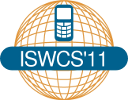About Aachen
Aachen is situated directly on the border with Belgium and the Netherlands. It is Germany’s most westerly city, with a population of nearly 260,000. Nearly 40,000 students attend Aachen’s four major colleges and universities (Rhineland-Westphalian Technical University [RWTH], University of Applied Sciences, Catholic University of Applied Sciences and Academy of Music).
Aachen unites tradition with progress. Charlemagne has left his mark throughout the city. The cathedral - the first monument in Germany to be included in the UNESCO Cultural Heritage list - and the gothic City Hall in which 32 German kings celebrated their coronations still form the heart of Aachen’s old city centre. And Charlemagne has lent his name to a prize awarded by Aachen’s citizens to personalities who have rendered outstanding services to European unity: the International Charlemagne Prize of Aachen. This award has been presented on Ascension Day every year since 1950.
But Aachen is by no means just a museum; it is a modern city, open to the world, with political, economic and cultural contacts that reach far beyond Germany’s borders. One example is Europe’s first transnational industrial estate with the name Avantis, which was developed in cooperation with the Dutch town of Heerlen. At EXPO 2000 in Hanover, Aachen was presented as a European model region, as a fine example of successful structural change and a remarkable instance of a region’s departure from mining and conventional industry to become one of Europe’s major high-tech locations.
This success story is a result of cooperation between the universities and the chambers of industry, research institutions, companies, business establishment centres and the city’s administration. The scientific competence available in Aachen has attracted famous international enterprises and research institutions including Ericsson, Ford, Philips, Takeda Pharma and Microsoft, and enabled the successful placing of up-and-coming technology companies such as Aixtron and Parsytec on the Neuer Markt in Frankfurt. Some 500 new, forward-looking companies providing over 10,000 jobs have grown up since 1985. Aachen’s colleges and universities develop top technologies for the sunrise industries such as information and telecommunication engineering, plastics engineering, computer science, materials science and biotechnology.
But Aachen has much to offer in respect of quality of life, too. The city has a flair and atmosphere of its own. The attractive layout of the old city centre, the important historic monuments, the wells and baths over the hottest natural springs in Europe, the bustling activity in the streets and squares, the cultural diversity and quality (Ludwig Forum for International Art, Suermondt-Ludwig Museum, Couven Museum, Burg Frankenberg Museum, International Newspaper Museum) and the many recreational and leisure activities make Aachen an exciting and pleasing whole. The Carolus-Therme is one of the most modern and attractive thermal baths in Europe.
Besides the presentation of the International Charlemagne Prize, the major annual events include the presentation of the Carnival Award "The Antidote to Deadly Earnest", the Aachen Peace Prize and the Aachen Innovation Award. Nor should we forget the CHIO World Equestrian Festival in the Soers region and the events of the AachenSeptemberSpecial.











